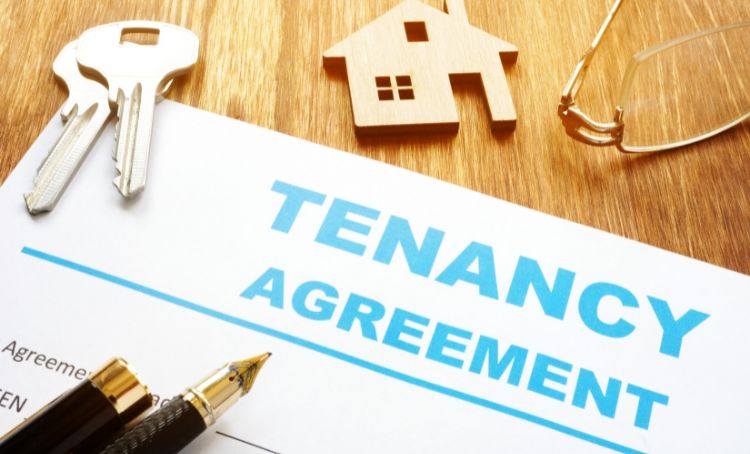

Top Tips for Growing Your Rental Property Portfolio

Growing your rental portfolio is about more than purchasing random properties and hoping that they’ll turn a profit. Wise real estate investments require a lot of planning and informed decision-making. Put simply, you need to have a strategy.
Having a firm plan to grow your property rental portfolio from the beginning will help to ensure your property cash flow stays on the right trajectory.
Our expert tips will help you pull together a real estate portfolio worthy of envy.
1. Define Your Investment Strategy
Before diving into expanding your rental portfolio, you need to define your investment strategy.
Think about your financial goals, risk tolerance, and the property types you want to invest in. For example, do you want to focus on residential properties, commercial spaces, or vacation rentals? Do you want to manage at multi-family properties, or would you prefer to deal with sole tenants?
Clarifying your investment strategy will enable you to make informed decisions, and target specific properties that align with your goals.
2. Do lots of market research
Once you have a rough idea of your investment strategy, the next step is finding out if it’s viable.
Understanding the local real estate market is crucial when expanding your rental portfolio. Analyze market trends, vacancy rates, rental demand, and any economic factors that could impact property values: such as interest rates, inflation and employment.
A market analysis should help you identify neighborhoods with growth potential, places with favorable rental laws, and amenities that attract tenants. It can also help you to identify undervalued properties, optimize rental income, and mitigate potential risks.
At this point, it helps to be flexible. Even if you’ve already decided to focus on one type of property, gaining more knowledge of the local real estate landscape may encourage you to pivot of another type of investment would be more lucrative.
After all, this is a financial decision: none of these properties will be your primary residence, so leave emotions at the door. Building your portfolio is all about finding the best financial viability.
So, If you’re in an area where office space is in high demand, you may want to focus on commercial properties. Meanwhile, areas with high market rents for residential properties could make single-family homes a wise investment choice.
3. Choose the right financing option
Unless you’re a billionaire, expanding your rental portfolio will usually require additional capital. There are lots of financing options available for this, such as traditional mortgages, commercial loans, private lenders, or forming partnerships.
If you’re planning on expanding quickly, a DSCR portfolio loan from Express Capital Financing could be the answer. This type of loan lets you finance all of your properties under one loan, one closing and one payment. With flexible terms, the loan can be tailored to suit your investment strategy.
When you’re considering your long-term financing options, remember to consider loan costs.
Think about:
- interest rates
- repayment terms
- the impact on your overall financial stability.
The benefit of choosing a DSCR (Debt Service Coverage Ratio Loan) is that it’s based on the operating income of your investments, and the ability of that cash flow to make your loan payments. Personal incom and credit scores aren’t as important here as they are in conventional loans.
4. Network with other savvy investors

One of the best ways to learn more about your local real estate landscape is to get to know people who live and breathe it.
Building relationships with real estate agents, brokers, and property managers can provide valuable information on off-market deals and potential investment opportunities. Networking also allows you to learn from experienced investors, understand market trends, and gain insights into specific neighborhoods or niches.
You may also find people who want to collaborate with you in growing your real estate portfolio.
Attending local real estate investment meetings and participating in industry events is a good way to get to know people in-person. Use websites like Meetup, LinkedIn and websites dedicated to real estate investment (like Connected Investors) to find out what’s going on in your area.
Online forums and subreddits are also a great way to connect with seasoned investors who have successfully grown their rental portfolios. You can continue gaining valuable insight, even during downtime on your phone.
5. Build a team to lean on
Don’t underestimate the work involved in building a strong property portfolio. Managing your rental property investments is not a one-person-job.
You’ll want the insight and expertise of a few people around you:
- Real estate agent: they can help you identify potential properties and negotiate deals
- Property manager: they handle your day-to-day operations, ensuring that your properties are well-maintained and rented out efficiently
- Lawyer: they can assist with legal documentation and protect your interests
- Accountant and financial advisor: the money people, they can help you with financial planning, tax strategies, and bookkeeping
- Contractors: for maintenance and renovation projects.
You don’t necessarily need to have them on retainer, but having their support will make building and maintaining your property portfolio much easier.
6. Stay informed and be adaptable
The real estate market is constantly evolving, and it’s important to keep up to date about industry trends, legislative changes, and economic factors that could affect your rental portfolio.
The easiest way to do this is to subscribe to reputable real estate publications, follow industry experts on social media, and join professional associations. The networking we mentioned earlier also helps here: you never know what important information you’re going to hear first “on the grapevine”.
Be proactive in monitoring market conditions and adapt your strategies accordingly. For example, if emerging technology is set to disrupt a particular property market, you may need to adjust your investment focus. Being savvy and adaptable will help you make informed decisions and seize new opportunities as they arise.
7. Always perform due diligence
Once you find a potential investment property, it’s important to perform due diligence before making an offer:
- Analyze the property’s physical condition and maintenance requirements
- Calculate potential rental income: is it likely to offer a strong cash flow that can offset the financing costs?
- Investigate the property’s history, including any legal or zoning issues that could affect its profitability
- Get professional home inspectors, appraisers, and attorneys involved to ensure you make an informed investment decision.
PRO TIP: Our free DSCR Calculator makes it easy to estimate a variety of factors that affect the ROI of your rental property.
It may take extra time and effort to conduct in-depth checks, but you want to make sure the income potential of every property in your portfolio is its peak.
If you’re focusing on fix-and-flip properties, the current condition may not be as important. Especially if you follow our tips on how to maximize the rentability of fix and flip properties.
8. Don’t underestimate property management
As you expand your rental portfolio, efficient property management becomes increasingly important.
If you don’t want to hire a property manager, or don’t have sufficient income to do it yet, you’ll need to develop solid property management strategies yourself. This will help you to handle day-to-day operations, including tenant screening, rent collection, and property maintenance.
Once you’ve got a positive cash flow, consider whether you’ll continue to manage properties yourself or hire a professional property management company.
Outsourcing property management can save time and effort, allowing you to focus on expanding your portfolio.
9. Track financial performance
To gauge the success of your rental portfolio expansion, keep track of its financial performance. If you have an accountant, they can handle this for you. As the primary investor it’s important to have your eyes on the figures, so make sure you get regular reports.
To assess success, you should:
- Monitor rental income and occupancy rates
- Keep track of debt obligations and expenses such as property taxes, insurance, and maintenance costs – including Tenant Improvement Allowances
- Conduct periodic reviews to evaluate the profitability of each property and identify areas for improvement.
Taking a data-driven approach will help you make informed decisions about acquiring additional properties, refinancing existing ones, or adjusting your rental rates. For example low occupancy may mean you’re pricing too high, while gentrification in the local area may mean it’s time to increase rents.
10. Keep your real estate portfolio diverse

While it’s good to have a niche, diversifying your real estate holdings enables you to spread your risk across multiple assets. Haing a wide range of properties reduces the impact of potential losses and creates a stable, long-term income stream. Additionally, a larger portfolio allows for greater scalability and increased cash flow, as the income generated from more properties can offset any vacancy or maintenance costs that may arise.
A strong plan will help you to grow
Expanding your rental portfolio requires careful planning, financial cautiousness, and a robust investment strategy.
Evaluate your goals, financial situation, and risk tolerance before deciding on the most appropriate investment strategy for scaling your rental portfolio. Do your research, network with other real estate professionals, and treat your rental portfolio as a business. Get a good team of people to support you and keep track of your monthly cash flow, and you should soon see some success as you expand.
And of course, take time to research the best investment property loans. Conventional mortgages may not be the best option here, but a DSCR portfolio loan designed for growing property portfolios could be. Get in touch to find out more about our flexible financing options for real estate investors.
By following these actionable tips, you can make informed decisions, mitigate risks, and increase the likelihood of success in growing your rental property portfolio.



Comments